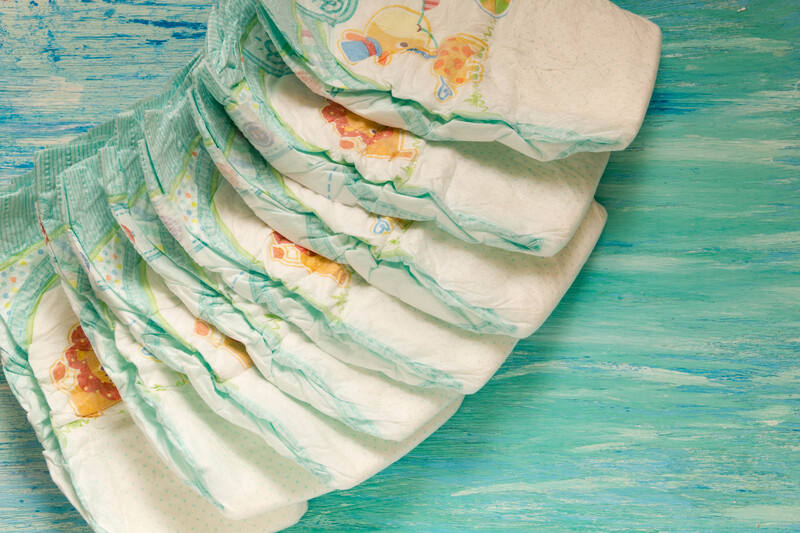Less is More: The Benefits of Decluttering Your Home
Are you overwhelmed by piles of possessions or longing for a serene, peaceful space? Embracing a minimalist home isn't just a trend -- it's a lifestyle shift that offers profound advantages. Decluttering is more than just organizing; it's a transformative process that impacts your mind, body, and surroundings. In this comprehensive guide, we'll explore how decluttering your home yields tangible benefits and share expert tips for embarking on your own decluttering journey.
Understanding Decluttering: What Does it Really Mean?
Decluttering your home means more than simply tossing away unused items. It's about intentionally choosing what enriches your life and letting go of excess. Decluttering isn't about deprivation, but about creating space for what matters most. By minimizing clutter, you pave the way to a cleaner, more organized, and harmonious living environment.
Types of Clutter
- Physical clutter: Excess possessions, untidy rooms, and disorganized storage spaces.
- Mental clutter: Overwhelm from unfinished tasks, constant distractions, and information overload.
- Emotional clutter: Items kept for sentimental reasons despite serving no practical purpose.
Decluttering your house addresses these various forms, freeing up energy and promoting well-being.

Why Less is More: The Key Benefits of Decluttering Your Home
Living in a clutter-free space provides far-reaching benefits for individuals and families alike. Here's an in-depth look at how a minimalist approach to home organization can improve your life.
1. Reduces Stress and Anxiety
Scientifically, excessive clutter triggers cortisol (the stress hormone), making you feel anxious and uneasy. Home decluttering leads to a more tranquil environment by:
- Eliminating visual distractions and allowing for better focus.
- Facilitating relaxation, as you no longer worry about overdue cleaning or misplaced items.
- Minimizing decision fatigue - knowing where everything is reduces mental strain.
2. Boosts Productivity and Focus
Clutter can sabotage your best intentions to work, study, or create. When your surroundings are tidy, your mind echoes that order. Here's how:
- Organized spaces promote efficiency and creativity.
- You save time previously spent looking for lost items or re-organizing chaotic spaces.
- Decluttering creates designated areas for different activities, improving your work-from-home setup.
3. Enhances Well-being and Mental Health
Numerous studies link tidy homes with greater happiness. A decluttered living space can:
- Reduce depression and boost self-esteem.
- Encourage healthier habits, such as regular cleaning and mindfulness.
- Make your home a sanctuary, fostering feelings of pride and safety.
4. Improves Physical Health
Did you know that clutter can have tangible health effects? Decluttering your home can:
- Minimize dust, allergens, and hidden mold, promoting cleaner indoor air.
- Lower the risk of accidents -- fewer obstacles mean fewer trips and falls.
- Motivate you to keep spaces sanitized, reducing the spread of germs.
5. Creates More Space and Functionality
Rather than feeling cramped or boxed in, a minimalist home unlocks fresh possibilities:
- Rooms appear larger, brighter, and more inviting.
- You can repurpose freed-up spaces for hobbies, exercise, or relaxation.
- Decluttering allows you to showcase cherished belongings without visual noise.
6. Saves Time and Money
One surprising benefit of home decluttering is its impact on your wallet and schedule:
- Cut down on duplicates -- when you know what you own, you avoid unnecessary purchases.
- Save time cleaning and maintaining only what you use and love.
- Potentially earn extra cash by selling items you no longer need.
7. Encourages Sustainability and Mindful Consumption
Decluttering isn't just beneficial for you -- it's good for the planet.
By sorting through possessions, you:
- Decrease waste through donations, recycling, or upcycling unused items.
- Adopt a more conscious approach to future purchases.
- Support local charities and those in need with gently used goods.
Step-by-Step Guide: How to Begin Decluttering Your Home
Set Clear Goals and Visualize Your Ideal Home
Are you aiming for a minimalist home or simply seeking a bit more order? Define your vision. Visualize what your ideal living space looks and feels like -- is it peaceful, airy, or highly functional? Set attainable goals for each room. Write them down to maintain motivation during the process.
Start Small: One Space at a Time
Decluttering your house may seem daunting, so break the project into manageable chunks:
- Begin with a single drawer, closet, or corner.
- Celebrate small victories -- progress fuels enthusiasm for the next step.
- Consider using a timer (15-30 minutes) to maintain focus without feeling overwhelmed.
Sort and Categorize: The Four-Box Method
An effective approach involves four clearly labeled boxes or bags:
- Keep: Items used regularly or cherished for memories.
- Donate/Sell: Good-condition belongings that no longer serve you.
- Recycle/Dispose: Broken, expired, or unusable items.
- Unsure: Items you're hesitant to let go of. Revisit this box after completing other areas.
Ask the Tough Questions
Evaluate each item with honesty:
- Have I used this in the past year?
- Does it serve a practical or emotional purpose?
- Would I buy this again today?
If the answer is "no," consider that it may be time to release the item.
Organize What Remains
After eliminating clutter, organizing your home becomes easier:
- Assign everything a specific spot to prevent future pile-ups.
- Use storage solutions such as baskets, shelves, or bins to maximize available space.
- Label containers and drawers for quick identification.
Decluttering Tips & Tricks for Lasting Results
Adopt the 'One In, One Out' Rule
For every new possession you bring into your home, remove one item. This keeps clutter at bay and ensures you only own what you truly need.
Declutter Regularly
Consistency is crucial. Schedule monthly or seasonal decluttering sessions for your home to maintain order long-term.
Digitize Where Possible
Paperwork and documents quickly multiply. Scan important papers and store them digitally to reduce physical clutter.
Embrace Mindful Shopping
Avoid impulse buys by asking yourself whether something adds genuine value to your life. Focus on quality over quantity.
Make it a Family Affair
Get everyone involved. Teach kids about the value of donating unused toys or clothing, and work together to organize shared spaces.
Transforming Your Life: Emotional and Mental Rewards of Decluttering Your House
The act of decluttering your living space brings deep emotional freedom:
- Letting go of excess symbolizes leaving behind emotional baggage and welcoming new opportunities.
- You gain a sense of control and accomplishment -- your home reflects your intentions, not chaos.
- Minimalist spaces inspire calmness, mindfulness, and gratitude for what you have.
People worldwide report feeling "lighter" and more optimistic after decluttering. It's more than a clean house - it's a fresh start.
Common Mistakes to Avoid When Decluttering
- Trying to do it all at once. Break tasks down to prevent burn-out.
- Over-sentimentality. While memories matter, don't let guilt or nostalgia keep you stuck. Take photos of meaningful items before letting go.
- Failing to set limits. Overfilling storage bins just relocates clutter. Be ruthless in what you keep.
- Not addressing root causes. Assess underlying habits or triggers that led to clutter in the first place.
Frequently Asked Questions About Decluttering & Minimalism
Is minimalism the same as decluttering?
Decluttering is often the first step toward minimalism, but not all who declutter adopt a strictly minimalist lifestyle. Minimalism is about prioritizing meaning, clarity, and functionality in all aspects of life -- not just possessions.
How often should I declutter my home?
The frequency depends on your household, lifestyle, and goals. Most people benefit from a seasonal review of their belongings or a quick monthly scan for unnecessary accumulation.
What should I do with unwanted items?
Donate usable goods to charity, sell valuable items online or at a garage sale, recycle where possible, and responsibly dispose of what cannot be reused. Consider the environment in all decisions.
Can I hire a professional organizer?
Absolutely! If you're overwhelmed, a professional can provide personalized solutions and guidance tailored to your space and needs.

Decluttering and Minimalist Living: Success Stories
Case Study 1: The Busy Family
The Smiths - a family of five - used to constantly battle overflowing cupboards and playrooms. By decluttering room by room and involving their children, they reclaimed their weekends from cleaning chores and discovered new hobbies to enjoy together in their more spacious home.
Case Study 2: The Home Office Transformation
When remote work became a necessity, Jane realized her guest room was more a storage area than a productive office. After donating unused linens and digitizing paper files, she created a peaceful, efficient workspace. Her productivity -- and job satisfaction -- soared.
Conclusion: Start Your Decluttering Journey Today
Less truly is more when it comes to your home environment. By embracing the philosophy of decluttering, you reap rewards -- improved mental and physical health, greater productivity, and renewed joy in your living spaces. Forget the notion that "more" equates to better; it's the conscious choice of less that unlocks deeper satisfaction and peace of mind.
Ready to make a change? Start small, be consistent, and celebrate each step toward a more intentional, clutter-free home. The journey to a lighter, brighter life begins today!